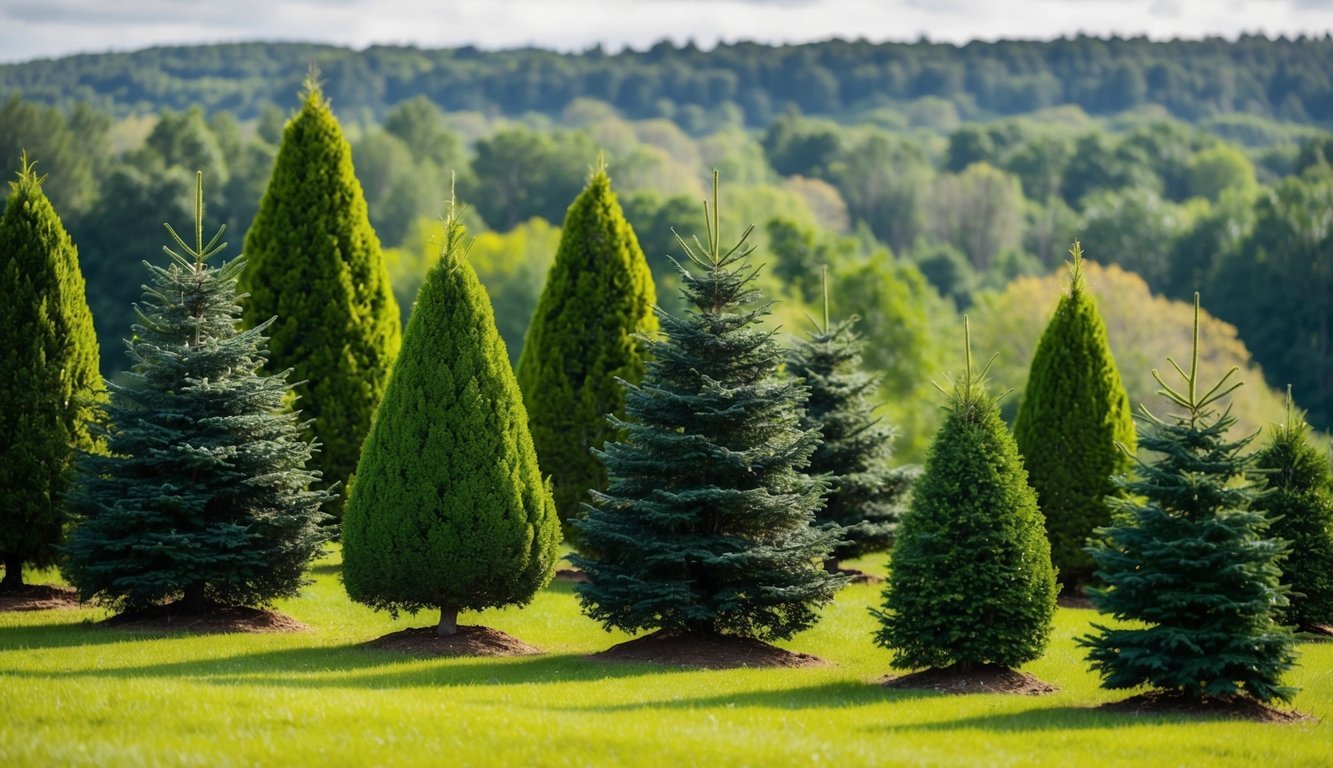
Selecting the right trees for your yard goes beyond just their visual appeal; it’s also about their long-term impact on your outdoor space.
While evergreens do provide consistent beauty throughout the seasons, some species might not be the best choice due to their invasiveness, toxicity, or overwhelming size.
Thanks to advice from an experienced arborist and horticulturist, here’s a rundown of nine evergreen trees you’ll want to reconsider before planting.
Trees to Reconsider
- Redwood (Sequoia sempervirens)
Magnificent and towering, redwoods can reach over 300 feet in height and live for millennia.
Their massive size makes them a poor fit for typical residential landscaping.
- Manchineel (Hippomane mancinella)
Often labeled the most dangerous tree in the world, the manchineel is famous for its lethal sap, which can cause severe skin reactions.
It’s important to approach this tree with caution.
- Yew (Taxus spp.)
The yew tree contains toxic alkaloids throughout its foliage, bark, and seeds.
Consuming any part of this tree could pose serious health risks, especially for children and pets.
- Coulter Pine (Pinus coulteri) Known for its enormous cones, which can weigh between 4 and 6 pounds, the Coulter pine can become a safety hazard when these heavy fruits fall unexpectedly.
- Australian Pine (Casuarina equisetifolia)
Despite its name, the Australian pine isn’t a true pine.
This species is invasive in many areas and can disrupt the growth of native plants nearby.
- Alder Buckthorn (Frangula alnus)
This species is notorious for its rapid, aggressive growth.
Alder buckthorn spreads quickly through seeds and suckers, potentially disrupting the local ecosystem.
- Chinese Privet (Ligustrum sinense)
Originally from Asia, Chinese privet is an invasive species that can easily take over.
Once it takes root, eradicating it becomes a daunting task.
- English Holly (Ilex aquifolium)
Priding itself on its striking red berries, English holly can nonetheless outcompete local vegetation.
It’s classified as invasive in some areas, further challenging native plants.
- Leyland Cypress (Cupressocyparis leylandii) While the Leyland cypress is known for its quick growth, it faces many diseases, making it a less reliable choice for ambitious gardeners seeking long-lasting trees.
Long-Term Considerations
In essence, while evergreens offer unique charm and green tones year-round, they need careful selection.
Prioritize species that blend well with your local ecosystem and keep your yard safe and beautiful.
Making informed decisions will allow your landscape to thrive for years to come.
Source: Marthastewart

